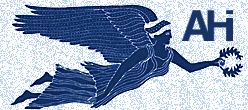 |
|
|
|
|
 |
AHI Protests National Georgraphic Identification of FYROM as"Macedonia" |
|
AHI Sends Letter to Editor of National Geographic Magazine Regarding their Identification of FYROM as "Macedonia" Washington, DC- On July 25, 2005, AHI Executive Director Nick Larigakis sent a letter to the editor of National Geographic Magazine regarding the June 2005 issue which includes an insert map of Europe identifying the nation of the Former Yugoslav Republic of Macedonia (FYROM) as that of "Macedonia." The text of the letter appears below, followed by the letter of response from National Geographic Magazine.
It would seem that the most objective and correct authority should be the United Nations, the one international body that the overwhelming majority of nations belong. Not the U.S. State Department, where decisions are based on political considerations. Nick Larigakis American Hellenic Institute 1220 16th St, NW Washington, DC 20036 Dear Mr. Larigakis: Thank you for your letter to the National Geographic Society prompted by the inclusion of Macedonia on our June map of Europe. National Geographic maps portray de facto situations. We feel that it is only through this system that we can produce reliable maps. Our decision for name usage has nothing to do with our government's policies. Macedonia was given independence when the Yugoslav government announced the new smaller Federal Republic of Yugoslavia consisting of Serbia and Montenegro only. In 1993, Macedonia was admitted to the U.N. under the provisional name of the Former Yugoslav Republic of Macedonia. We use the short form of this name on our map. Should Macedonia accept Greece's suggestion to change its name, our maps will change accordingly. We appreciate your comments, and I will see that they are circulated among our editorial and Cartographic staffs. Sincerely, Erin Dickinson NGM Comments Coordinator |
|
For more information about the American Hellenic Institute in Washington, D.C., contact Georgia Economou, Director of Public Relations for AHI, at (202) 785-8430 or at georgia@ahiworld.org, or visit the groups' website at http://www.ahiworld.org. AHI was founded in 1974 following Turkey's illegal invasion and occupation of 37.3% of Cyprus. It is a membership-based organization with members throughout the nation. AHI's core mission is to promote American values and the rule of law in U.S. foreign policy and to strengthen relations between the U.S. and Greece and Cyprus as being in the best interests of the United States. It conducts an active program with Congress in espousing and supporting legislation designed to promote American interests in Southeast Europe and the Eastern Mediterranean and is registered with the Congress under the Lobbying Act. The AHI Foundation is the first think-tank devoted exclusively to the study of the issues confronting the Greek American community. This organization sponsors conferences, seminars and publishes books and other materials on the issues. HCS maintains an extensive archives for AHI articles and press releases which visitors may browse under the American Hellenic Institute Releases section of the archives at http://www.helleniccomserve.com/contents.html. |
|
 |
|
|
2000 © Hellenic Communication Service, L.L.C. All Rights Reserved. http://www.HellenicComServe.com |
|